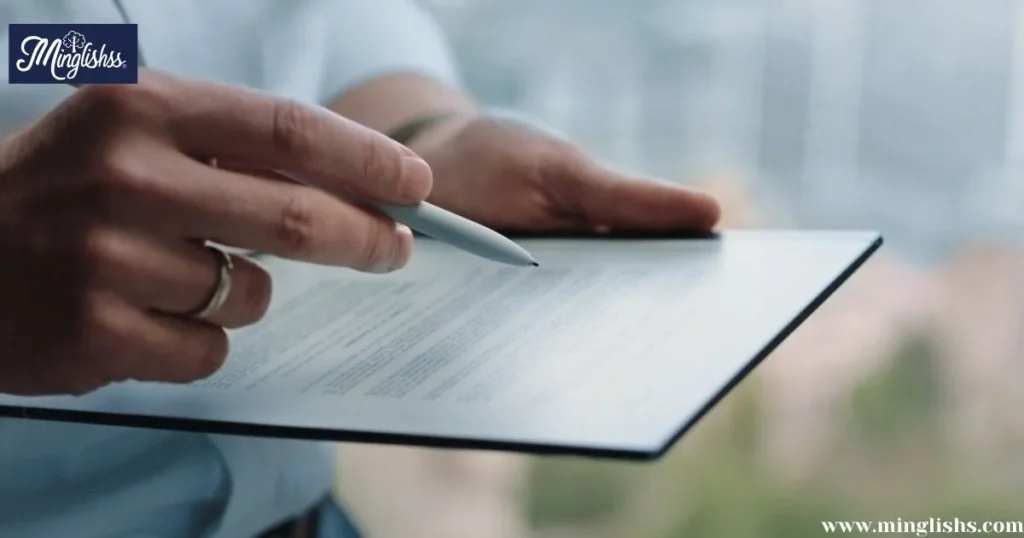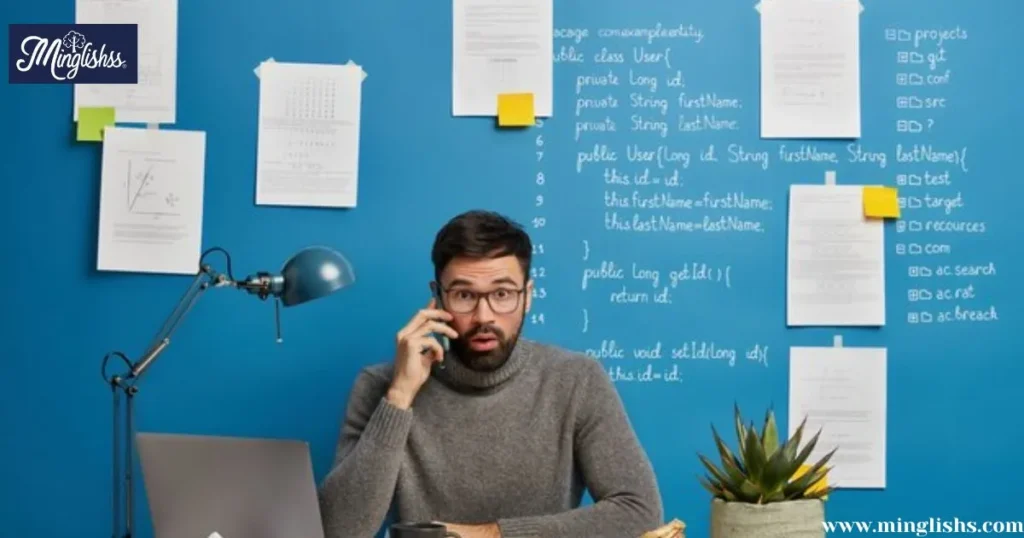“A key point to bring up”
In both written and spoken communication, there are moments when we want to highlight something important or noteworthy. The phrase “it is worth mentioning” is often used to emphasize key details or ideas that deserve attention. While this phrase is useful, it can sometimes sound repetitive or formal. To keep your language fresh and varied, it’s important to know other ways to express the same sentiment.
In this blog, we’ll explore 35 alternative phrases for “it is worth mentioning” that can help you enhance your communication. Each alternative will come with a scenario, explanation, and additional tip for effective use. These variations will allow you to convey emphasis in different tones and styles, whether you’re writing a formal report, casual conversation, or crafting a creative piece.
Let’s dive in and discover how you can add variety and impact to your language.
35 Other Ways to Say “It Is Worth Mentioning”
1. “It’s Important to Note”
Scenario: Sarah is presenting her research findings and needs to highlight a critical piece of information.
Explanation: Sarah says, “It’s important to note that the results were consistent across all experiments,” emphasizing the relevance of the detail.
Additional Tip: Use this phrase in formal or professional settings to draw attention to significant facts.
2. “It’s Worth Noting”

Scenario: While giving a speech, Tom emphasizes a critical factor.
Explanation: “It’s worth noting that this change will affect our long-term goals,” Tom says.
Additional Tip: This phrase can be used in both formal and casual contexts to highlight details.
3. “It’s Noteworthy”
Scenario: During a meeting, Emily points out a surprising trend in the sales data.
Explanation: “It’s noteworthy that our sales have grown by 20% this quarter,” Emily remarks.
Additional Tip: Use “noteworthy” when you want to emphasize something unusual or remarkable.
4. “It’s Crucial to Point Out”
Scenario: David is explaining a problem with the project timeline.
Explanation: “It’s crucial to point out that the project is behind schedule,” David asserts.
Additional Tip: This is ideal for situations where the information has a significant impact.
5. “It’s Relevant to Mention”
Scenario: In a casual conversation, Mark mentions a detail about his travel plans.
Explanation: “It’s relevant to mention that I will be out of town next week,” Mark says.
Additional Tip: Best for casual conversations or when discussing matters that have an immediate effect.
6. “This Is Worth Bringing Up”
Scenario: Lisa is discussing a topic during a class discussion and needs to highlight an important idea.
Explanation: “This is worth bringing up because it directly influences our final decision,” Lisa explains.
Additional Tip: This phrase is ideal for situations where the detail is closely tied to a bigger discussion.
7. “This Should Be Highlighted”
Scenario: Ryan is reviewing a report and needs to call attention to a key finding.
Explanation: “This should be highlighted as it provides essential context for the analysis,” Ryan suggests.
Additional Tip: Use when emphasizing something that enhances understanding or provides clarity.
8. “It’s Worth Emphasizing”
Scenario: Joanna is writing a recommendation letter and stresses a candidate’s strength.
Explanation: “It’s worth emphasizing that she consistently exceeds performance expectations,” Joanna writes.
Additional Tip: Great for focusing on strengths or essential elements in both formal and casual writing.
9. “It’s Significant to Note”
Scenario: Adam is discussing the impact of a new law.
Explanation: “It’s significant to note that the law will take effect next month,” Adam says.
Additional Tip: Use this when pointing out something that has an important future impact.
10. “It’s Worth Pointing Out”

Scenario: Mary is explaining a new procedure at work.
Explanation: “It’s worth pointing out that all employees must complete this form before starting,” Mary explains.
Additional Tip: Ideal for directing someone’s attention to specific, practical details.
11. “It’s Worth Considering”
Scenario: Anna is recommending a new strategy to her team.
Explanation: “It’s worth considering that this approach could save us time in the long run,” Anna suggests.
Additional Tip: Use when introducing an idea or suggestion that deserves further thought.
12. “It’s Important to Consider”
Scenario: John is discussing possible impacts of a new policy change.
Explanation: “It’s important to consider how this will affect our overall budget,” John advises.
Additional Tip: Use this to draw attention to factors that need careful evaluation.
13. “This Deserves Attention”
Scenario: Claire is evaluating a proposal and finds an unusual but important observation.
Explanation: “This deserves attention, as it could lead to innovative improvements,” Claire notes.
Additional Tip: Ideal for highlighting unique or innovative ideas.
14. “This Is Worth Mentioning in Passing”
Scenario: Michael is talking about a product launch and wants to highlight a small yet important detail.
Explanation: “This is worth mentioning in passing, but it could affect our marketing efforts,” Michael points out.
Additional Tip: Great for informal situations when you want to bring up a small but valuable point.
Other Ways to Say “It Was Nice Talking to You”
15. “It’s Worth Recognizing”
Scenario: Sophia is discussing a colleague’s accomplishments.
Explanation: “It’s worth recognizing how much effort he has put into this project,” Sophia observes.
Additional Tip: Use this to acknowledge someone’s contributions or achievements.
16. “This Is Worth Acknowledging”
Scenario: Laura is talking about a team member’s unique skills.
Explanation: “This is worth acknowledging as it greatly contributes to our team’s success,” Laura remarks.
Additional Tip: Use this when emphasizing recognition for someone’s effort or skill.
17. “It Should Be Underlined”

Scenario: Tom is explaining a crucial point in a presentation.
Explanation: “It should be underlined that we need more data before proceeding,” Tom states.
Additional Tip: Ideal for emphasizing facts or statements that are central to the discussion.
18. “It’s Worth Drawing Attention To”
Scenario: Nancy is writing an article and needs to point out a vital piece of information.
Explanation: “It’s worth drawing attention to the fact that our website traffic has doubled,” Nancy writes.
Additional Tip: Use this in formal writing when drawing attention to statistics or findings.
19. “This Should Be Noted”
Scenario: Kevin is informing the team about a policy change.
Explanation: “This should be noted, as it directly impacts our current workflow,” Kevin informs his colleagues.
Additional Tip: Best used when delivering important information that needs to be remembered.
20. “This Is Worth Noticing”
Scenario: Rachel notices an interesting trend while analyzing data.
Explanation: “This is worth noticing as it indicates a significant change in consumer behavior,” Rachel observes.
Additional Tip: Use this to draw attention to trends, patterns, or subtle changes.
21. “It’s Worth Drawing Up”
Scenario: Peter is reviewing the details of a legal contract and stresses a key term.
Explanation: “It’s worth drawing up the fact that these clauses will apply for the next three years,” Peter advises.
Additional Tip: This is a more formal alternative, ideal for legal or contractual discussions.
22. “It’s Noteworthy to Mention”

Scenario: Olivia is discussing a milestone achievement during a meeting.
Explanation: “It’s noteworthy to mention that we hit our annual targets two months ahead of schedule,” Olivia says.
Additional Tip: Use this phrase when discussing significant achievements or breakthroughs.
23. “It’s Worth Observing”
Scenario: George is pointing out an observation that might affect future projects.
Explanation: “It’s worth observing that client feedback on the new design has been overwhelmingly positive,” George mentions.
Additional Tip: Use this when drawing attention to something that requires future observation.
24. “It’s Worth Bringing Up”
Scenario: Alicia is discussing a previous conversation during a team meeting.
Explanation: “It’s worth bringing up that we need to finalize the budget by next week,” Alicia reminds the group.
Additional Tip: This is great for casual settings when revisiting a topic or point in an ongoing discussion.
25. “It’s Worth Considering Carefully”
Scenario: Jake suggests a new approach to marketing.
Explanation: “It’s worth considering carefully how this will affect our brand’s image,” Jake recommends.
Additional Tip: Use this when urging someone to think critically about a suggestion or decision.
26. “It’s Valuable to Point Out”
Scenario: Karen is making a case for more research in a project.
Explanation: “It’s valuable to point out that further studies will ensure the accuracy of our results,” Karen argues.
Additional Tip: Ideal for situations where accuracy and detail are essential.
27. “This Is Worth Mentioning in Context”
Scenario: John is explaining an event that has wider implications.
Explanation: “This is worth mentioning in context, as it directly impacts our overall strategy,” John notes.
Additional Tip: Use this when contextualizing a piece of information that might otherwise seem isolated.
28. “It’s Beneficial to State”
Scenario: Caroline is explaining a critical factor in the success of a business initiative.
Explanation: “It’s beneficial to state that customer satisfaction is the cornerstone of our success,” Caroline shares.
Additional Tip: Use this when emphasizing a key factor that contributes to success.
29. “This Deserves to Be Emphasized”
Scenario: Mark is highlighting a key accomplishment in a team’s performance.
Explanation: “This deserves to be emphasized because it represents the hard work of the entire team,” Mark says.
Additional Tip: Ideal for emphasizing achievements or noteworthy actions.
30. “This Should Be Addressed”

Scenario: Julia is pointing out a concern regarding a new project.
Explanation: “This should be addressed immediately, as it could impact our deadlines,” Julia advises.
Additional Tip: Use this when you need to bring attention to something requiring immediate attention.
31. “It’s Useful to Mention”
Scenario: Samantha is discussing a piece of advice that could benefit the team.
Explanation: “It’s useful to mention that effective communication is key to resolving conflicts,” Samantha notes.
Additional Tip: Use this phrase to suggest something that can be of practical use to the listener.
32. “It’s Relevant to Highlight”
Scenario: Ethan is emphasizing a critical deadline.
Explanation: “It’s relevant to highlight that we have only three days left to submit our proposal,” Ethan reminds the team.
Additional Tip: Perfect for stressing the relevance of something in the current situation.
33. “It’s Worth Calling Attention To”
Scenario: Sophie is discussing changes in a team’s workflow.
Explanation: “It’s worth calling attention to the new procedures that will save us time and resources,” Sophie says.
Additional Tip: Great for directing focus to changes or updates in processes.
34. “This Is Worth Taking Note Of”

Scenario: Steve is explaining the significance of a market trend to his colleague.
Explanation: “This is worth taking note of, as it might influence our next move,” Steve advises.
Additional Tip: Use when you want to ensure that others will remember important details.
35. “It’s Critical to Mention”
Scenario: Chloe is emphasizing a requirement in a job application.
Explanation: “It’s critical to mention that applicants must submit their documents by the end of the month,” Chloe highlights.
Additional Tip: Use when you need to highlight something crucial to a specific action or outcome.
Pros and Cons
| Pros | Cons |
| Provides variety in communication. | May sound too formal in some contexts. |
| Helps emphasize important details. | Overuse may diminish impact. |
| Works in both formal and informal contexts. | Can be seen as repetitive in casual conversations. |
| Keeps the message clear and focused. | Some alternatives may sound too complex. |
| Allows for emphasis without redundancy. | Not all alternatives fit every context. |
FAQs
- What are other ways to say “It’s worth mentioning”?
Alternatives include “It’s important to note,” “It’s crucial to point out,” and “This is worth highlighting.” - Can I use these alternatives in everyday conversations?
Yes, many of these alternatives are suitable for casual settings as well as formal contexts. - How do I choose the right alternative?
Consider the formality of the setting and the emphasis you want to give the information. For example, use “It’s crucial to point out” for urgent matters, while “This is worth mentioning” is more neutral. - Can these phrases be used in written communication?
Absolutely, these alternatives are excellent for both formal emails and professional reports. - Should I avoid overusing these phrases?
Yes, to maintain impact, it’s best to vary your language and use these alternatives sparingly.
Conclusion
Mastering different ways to say “It is worth mentioning” will help you express yourself more clearly and creatively. By switching up your language, you can maintain the attention of your audience, whether you’re writing a formal report or engaging in a casual conversation. Each alternative offers a unique tone and emphasis, giving you flexibility to choose the right phrase for the right situation.

I’m Jane Austen, a language expert at Minglishs, dedicated to helping learners master English through engaging and accessible content. My passion for literature and teaching drives me to make language learning both enjoyable and effective.










